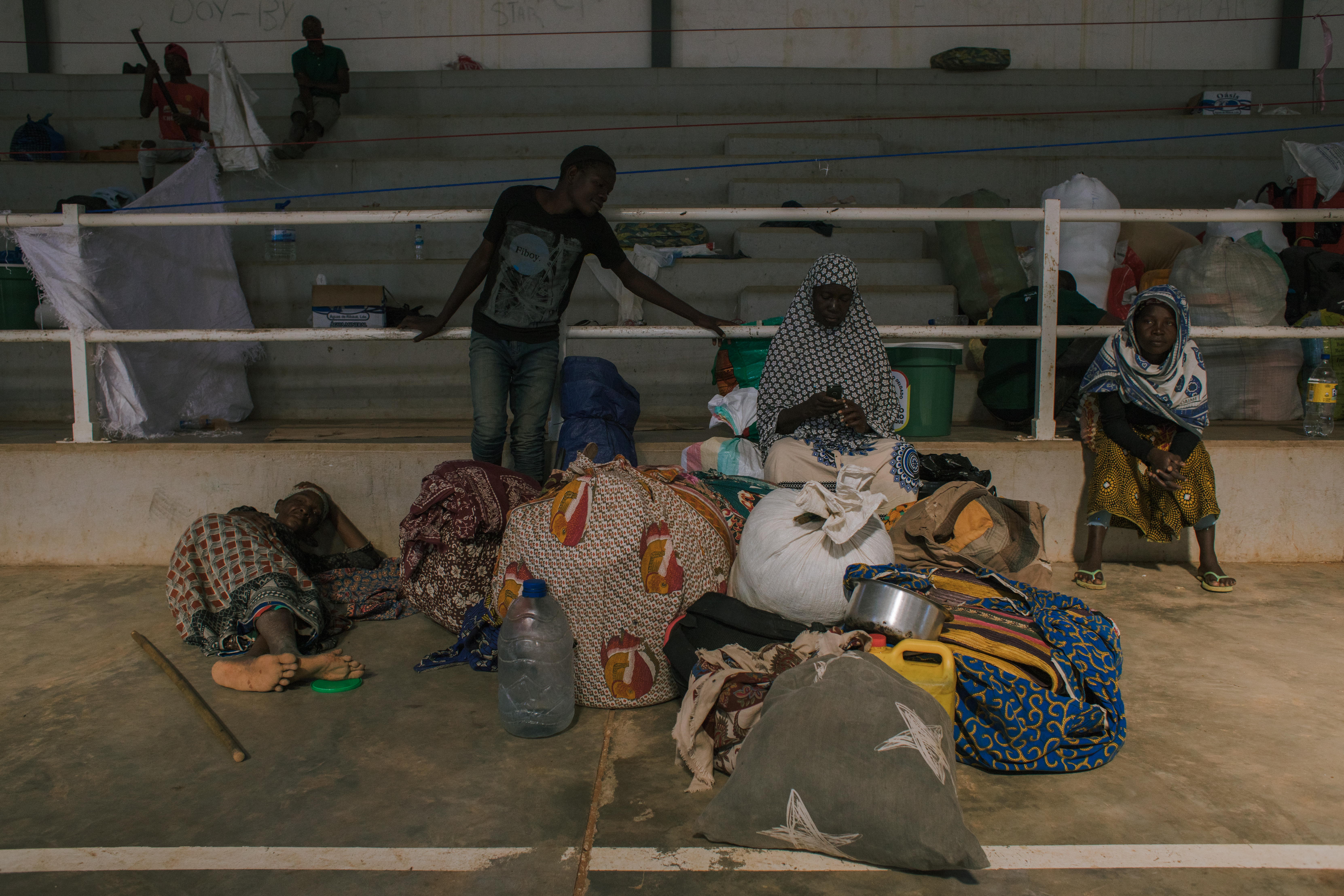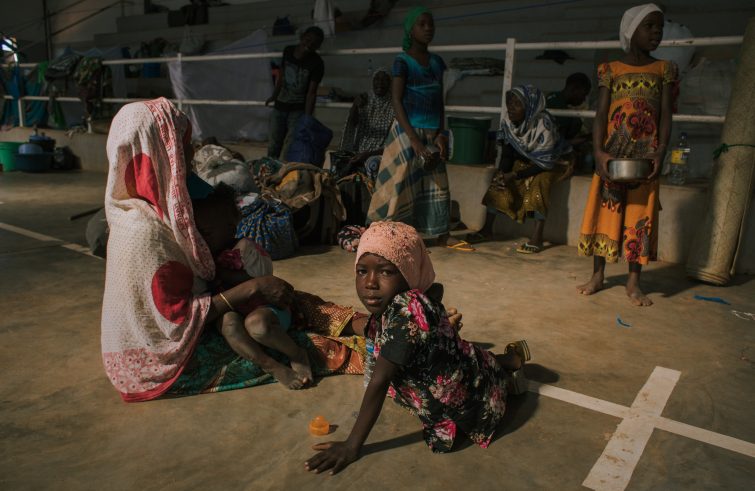
A week ago, on September 6, , Sister Maria De Coppi, a Comboni missionary from the Italian diocese of Vittorio Veneto, was killed in a terror attack at Chipene, in northern Mozambique. The Italian media relayed the news for a few hours, given her nationality, but it soon fell into oblivion. It is scarcely known that the conflict in northern Cabo Delgado province – and lately also southwards in Nampula province – has been ongoing since 2017, a complex combination of jihadism and economic interests over the exploitation of precious gas and oil fields in the districts of Palma and Mocimboa da Praia. The insurgents are presumably linked to the self-proclaimed Islamic State Province in Mozambique. The number of displaced persons hit 950,000 in the last few days, 200,000 more than in the last few months, due to the resurgence of attacks. The death toll since the beginning of the conflict is approximately 2,000/2,500, a surely underestimated figure.
The dynamics remain very much the same: armed men, carrying explosive devices, break into villages and destroy everything within their reach. They burn, shoot, destroy crops and livestock, they rape and kill, assaulting health centres, schools and religious institutions in particular. They terrorise the population and force them to flee to the south. A total of 11,606 people fled last week as a result of several attacks, including the one on Sister De Coppi’s mission. Safe zones decrease by the day.
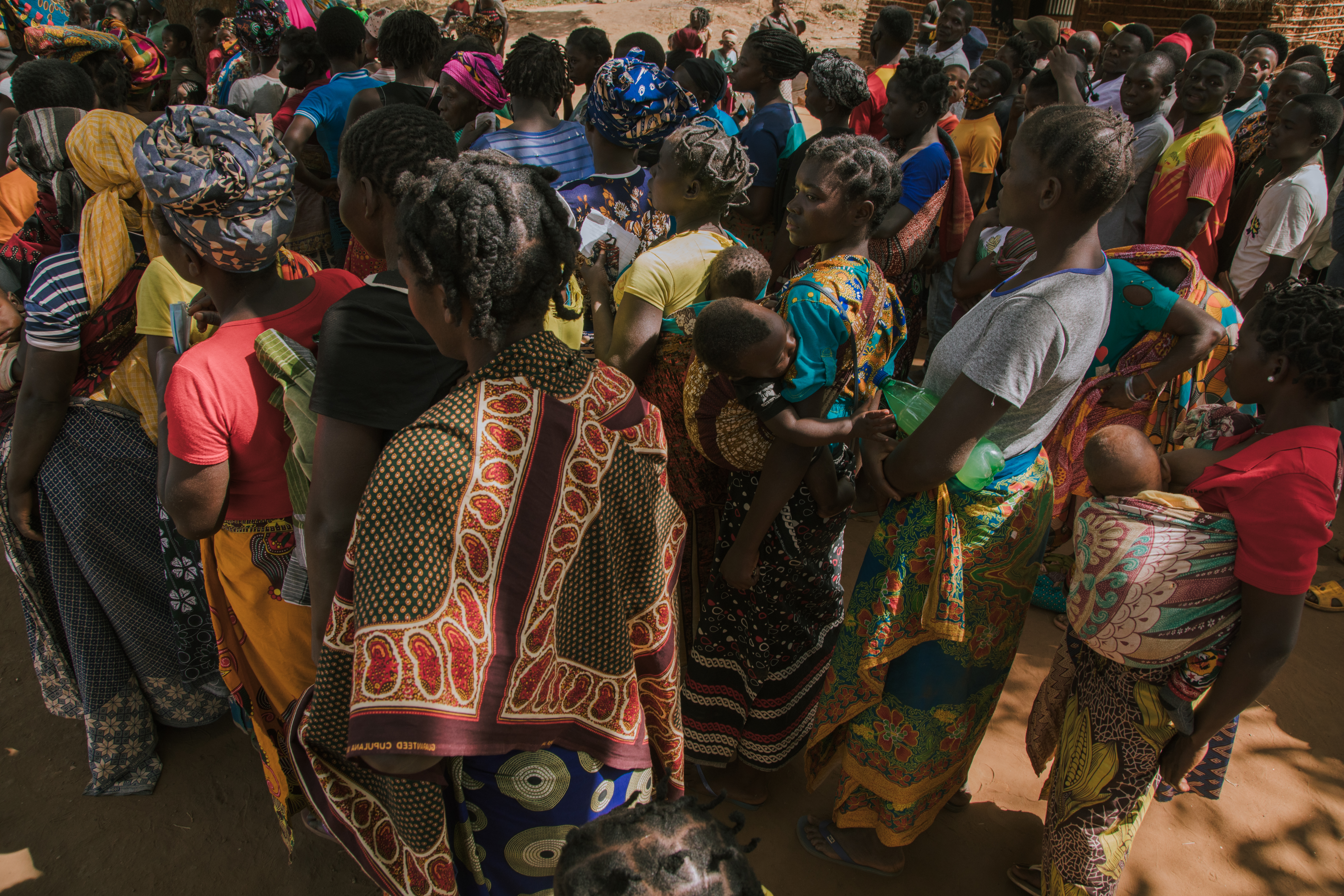 The largest number of displaced people in Pemba, 60% of them children. Camps for displaced persons are increasing dramatically in the city of Pemba and in other areas. 60% are children. They resemble makeshift villages, with an internal community organisation and the presence of large international organisations (UNHCR and IOM) as well as non-governmental organisations that distribute food and non-food items. They are trying to meet enormous needs.
The largest number of displaced people in Pemba, 60% of them children. Camps for displaced persons are increasing dramatically in the city of Pemba and in other areas. 60% are children. They resemble makeshift villages, with an internal community organisation and the presence of large international organisations (UNHCR and IOM) as well as non-governmental organisations that distribute food and non-food items. They are trying to meet enormous needs.
AVSI is one of these NGOs, present in various parts of Mozambique since 2010 and in the province of Cabo Delgado since 2013. It has been actively operating in the country with significant development programmes in the fields of education, urban development, emergency, energy and environmental protection. Over the past few years it responded to a surge in the number of displaced persons with new emergency programmes. In Pemba, they are present with 120 staff ( only 6 of whom are expatriates) managing the refugee camps, distributing humanitarian aid and providing temporary shelters for those arriving. This activity came on top of the traditional development projects.
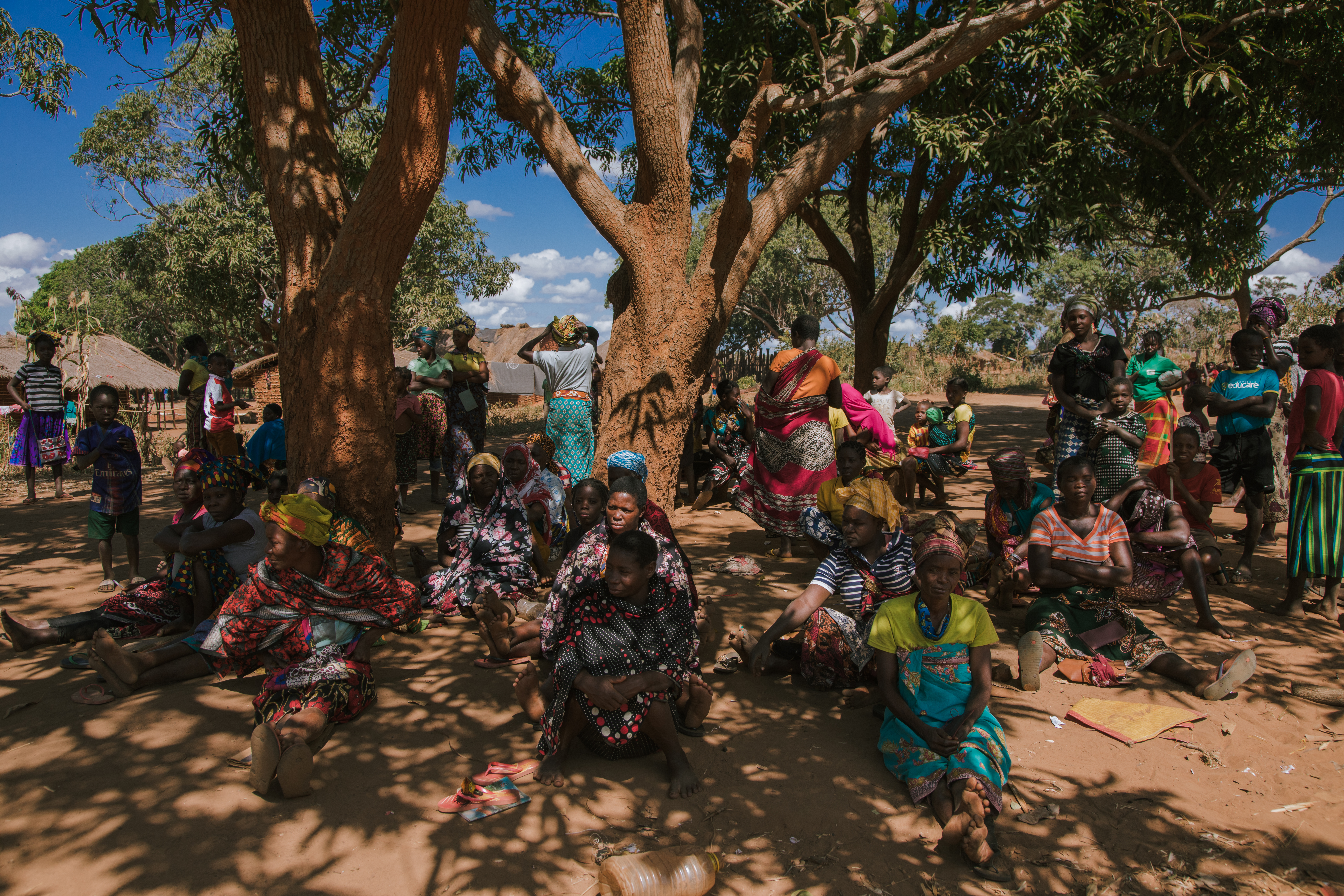 Displaced persons’ voluntary return suspended. “We had been working on voluntary repatriations as of late,” Miriam Ruscio, AVSI’s regional programme coordinator for south-east Africa, tells SIR from Pemba. “Unfortunately, the rise in terror attacks in June-July caused a change of plan. There is an atmosphere of seeming peace in the city, but the situation is unstable. Repatriations are not possible for now.”
Displaced persons’ voluntary return suspended. “We had been working on voluntary repatriations as of late,” Miriam Ruscio, AVSI’s regional programme coordinator for south-east Africa, tells SIR from Pemba. “Unfortunately, the rise in terror attacks in June-July caused a change of plan. There is an atmosphere of seeming peace in the city, but the situation is unstable. Repatriations are not possible for now.”
Attack on the Comboni community. Aid workers, especially those working in Catholic institutions, were deeply shocked by the latest attack in which the Comboni sister lost her life. “We are grateful for the work done by missionary institutes in these areas,” says Ruscio. “They are all endowed with an extraordinary spirit and strength that amazes us; they never give up and keep on working, in the hope that these dramatic events will help people understand what is happening here. Everyone hopes that the international community will finally wake up.”
 Heightened security alert and security measures have increased since the latest attacks, as required by the relevant safety protocols for people working in conflict zones. Staff movements are restricted and closely guarded, the situation is monitored continuously. “We are not afraid and we are prepared to adjust our response, never losing hope. However, we don’t consider ourselves a target and I don’t think the conflict has a religious motivation”, she points out. ” Those groups attack anyone who crosses their way in order to sow panic. At the grassroots level, Muslims and Christians live together peacefully and respect each other.”
Heightened security alert and security measures have increased since the latest attacks, as required by the relevant safety protocols for people working in conflict zones. Staff movements are restricted and closely guarded, the situation is monitored continuously. “We are not afraid and we are prepared to adjust our response, never losing hope. However, we don’t consider ourselves a target and I don’t think the conflict has a religious motivation”, she points out. ” Those groups attack anyone who crosses their way in order to sow panic. At the grassroots level, Muslims and Christians live together peacefully and respect each other.”
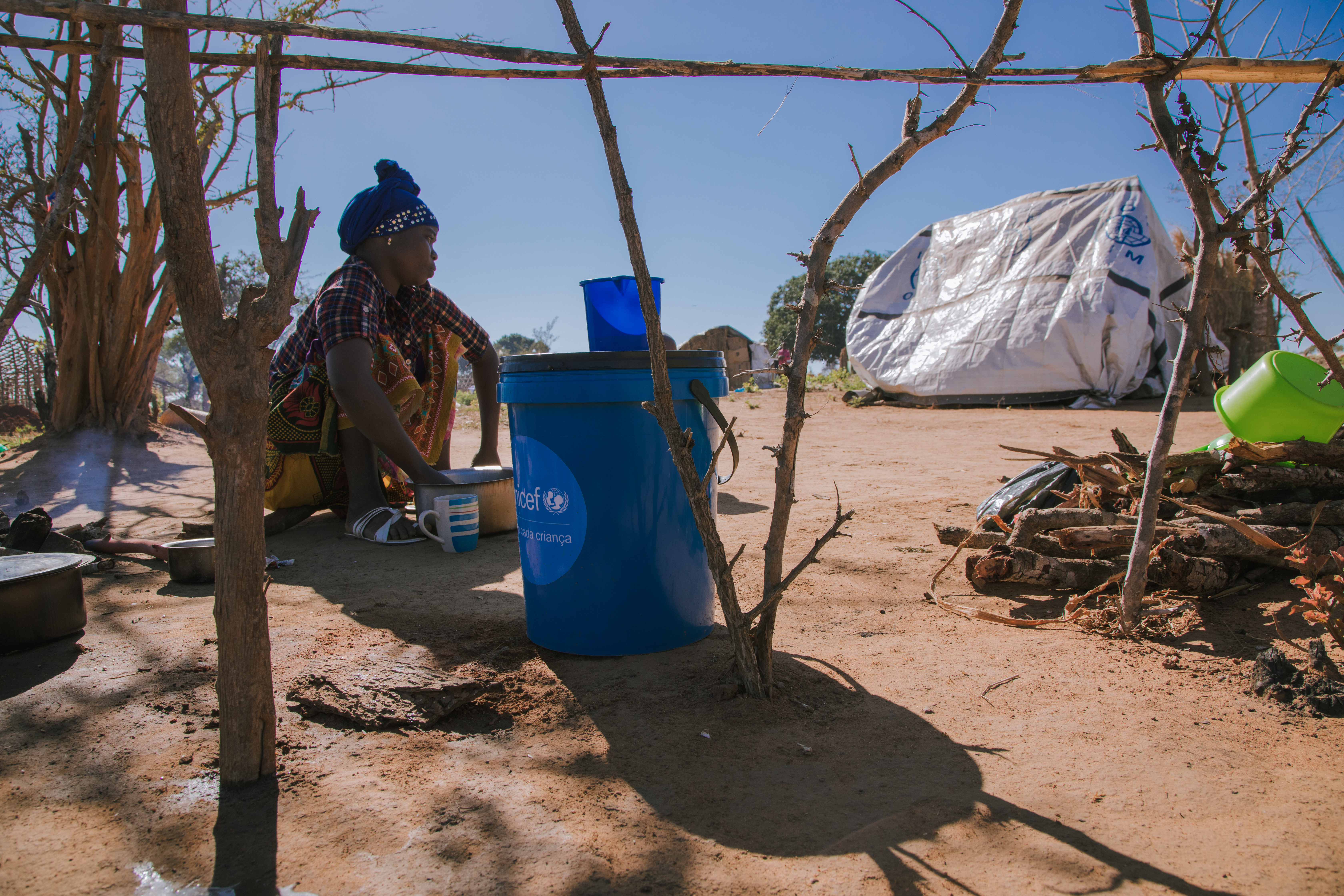 High instability. Government and Rwandan military forces are present on the ground, but the territory is still not under control. The Government of Mozambique has launched a plan for the reconstruction of Cabo Delgado province, due to be completed in 2025, although “until a serious effort is made to mitigate the conflict, reconstruction is not a realistic option,” says the AVSI cooperator.
High instability. Government and Rwandan military forces are present on the ground, but the territory is still not under control. The Government of Mozambique has launched a plan for the reconstruction of Cabo Delgado province, due to be completed in 2025, although “until a serious effort is made to mitigate the conflict, reconstruction is not a realistic option,” says the AVSI cooperator.
Hope, albeit small, is reposed “in the beauty of these places and its people,” she concludes. “These are paradisiacal places, with a wealth of natural resources that should be exploited to the advantage of the population. People here could live peacefully off farming, tourism and the earnings from the deposits.”

